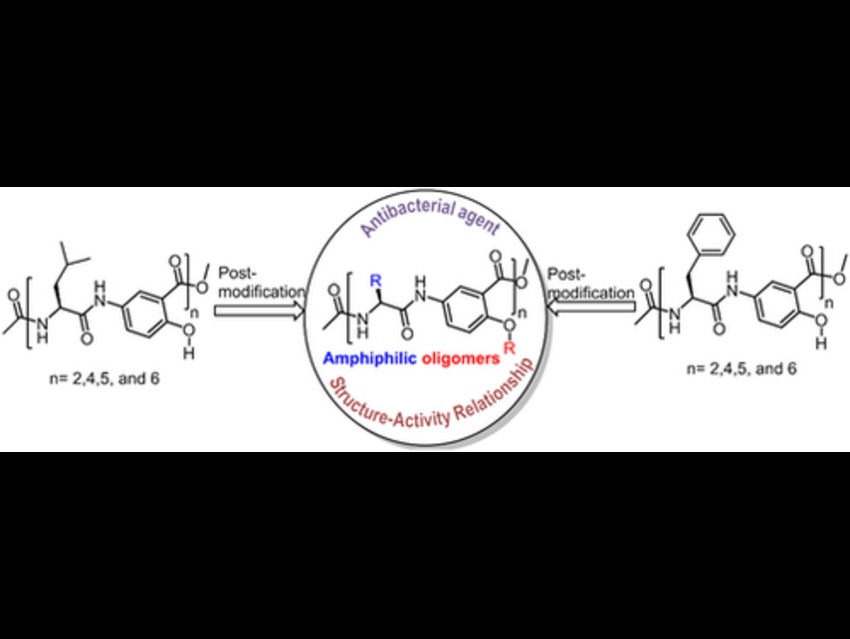The study addresses the challenge of designing effective antimicrobial agents that can selectively target harmful bacteria. Traditional antibiotics often face resistance issues, and there’s a need for new molecules with better control over structure and function. The research was conducted by a team of scientists, including Sidharth Chopra, CSIR-Central Drug Research Institute, Uttar Pradesh, India, Panchami Prabhakaran, Central University of Gujarat, Gujarat, India, and colleagues.
The team developed α/γ hybrid foldamers, synthetic molecules that mimic protein folding. They introduced a site-selective post-modification strategy to add different functional groups at multiple positions on the foldamer scaffold. This approach allows fine-tuning of amphiphilicity, which is crucial for antimicrobial activity. It’s the first report of such modifications on short foldamers.
The researchers created new antimicrobial agents by designing α/γ hybrid foldamers with hydrophobic amino acids [leucine (Leu)/phenylalanine (Phe)] and 5-amino salicylic acid (ASA) as key components. They used the different reactivity of ASA’s phenolic OH groups to perform site-selective modifications, allowing them to introduce functional groups at specific locations without changing the foldamer’s structure. These modifications were achieved through O-alkylation. Analytical methods like NMR spectroscopy, circular dichroism, and computational modeling confirmed the structure and folding patterns. Microscopy showed that the peptides could self-assemble into nanostructures. The α/γ hybrid oligomers containing Leu were more potent than those with Phe, though the Phe-containing peptides showed greater selectivity in their antimicrobial effects while performing biological testing against the ESKAP bacterial strains.
Furthermore, the analyses indicated that site-modified foldamers have potential for drug delivery, imaging, and anticancer uses. This strategy appears promising for a wide range of applications, and ongoing research aims to further develop these molecules for clinical purposes, especially to address antibiotic resistance and improve targeted drug delivery.
- Amphiphilicity to α/γ Hybrid Foldamers through Post-Modification at Multiple Sites: Antimicrobial Design and Structure-Function Relationship
Syed Kabir Hussain Shah, Rahul Maitra, Alpana Boruah, Karma Patel, Payal Chauhan, Shubham Dashora, Nadakath Sreerag, Arup Roy, Sidharth Chopra, Panchami Prabhakaran
ChemBioChem 2025
https://doi.org/10.1002/cbic.202400940



